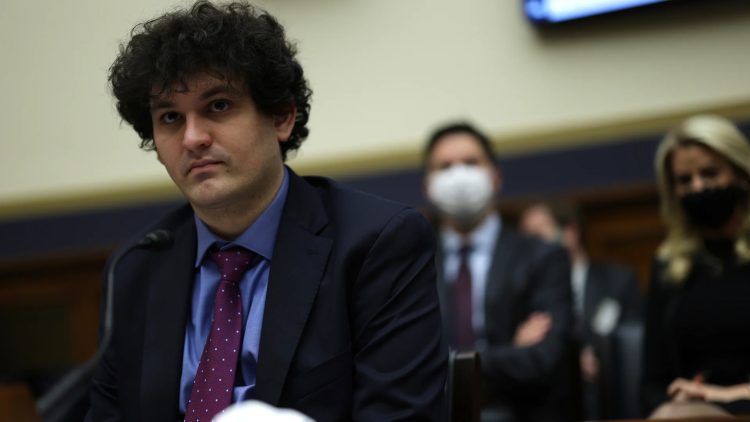Publisher: Maaal International Media Company
License: 465734
Cryptocurrency emperor arrested in Bahamas at US prosecution request
اقرأ المزيد
The Bahamas government announced that Sam Bankman Fried, founder of the loss-making cryptocurrency exchange FTX, was arrested in the Bahamas on Monday, after US prosecutors filed criminal charges against him, as confirmed by the South District Attorney’s Office, New York, who is investigating the collapse of FTX and its sister business, Alameda.
According to “CNN,” the District Attorney for the Southern District of New York, Damian Williams, said: “Earlier Monday evening, the Bahamas authorities arrested Samuel Bankman Fried at the request of the Government of the United States of America, based on a sealed indictment filed by”office of the Attorney General for the Southern District of New York”. He added, “We expect to move to reveal the indictment and we will have more to say at that time.”
The Royal Bahamas Police Force said, in a statement, that Bankman Fried was arrested, without incident, at his apartment complex in Nassau, shortly after 6 p.m. EST Monday, and is scheduled to appear in court. Today is Tuesday.
After the US District Attorney’s Office for the Southern District of New York confirmed Bankman Fried’s arrest, the US Securities and Exchange Commission said it authorized separate charges related to “violations of securities laws” committed by Bankman Fried, which will be filed on Tuesday.
It is not clear what the nature of the accusations await Bankman Fried, the 30-year-old famous in the field of cryptocurrencies, who became an overnight outcast last month, after his company faced a liquidity crisis and filed for bankruptcy, which left At least a million depositors are unable to access their funds
The New York Times quoted a person familiar with the matter as saying that the charges against Bankman Fried included fraud, conspiracy to defraud, and money laundering.
The extradition treaty between the United States and the Bahamas allows US prosecutors to transfer suspects to US soil if the charges would be punishable by at least a year in prison in the jurisdiction of both sides.
In the four weeks since FTX filed for bankruptcy, Bankman Fried has sought to portray himself as a down-on-his-luck CEO, denying accusations that he defrauded FTX clients. “I didn’t commit fraud on purpose, I didn’t want any of this to happen,” he told the BBC over the weekend. “I certainly wasn’t as qualified as I thought I was.”
On Tuesday, Bankman Fried was scheduled to appear before the US House of Representatives Financial Services Committee, which will seek answers about how the company’s collapse led to the decline of all digital asset systems, as many cryptocurrency firms ceased operations and froze. Client accounts and in some cases filed for bankruptcy, due to its dealings with FTX
After his arrest, the chairwoman of the US House of Representatives Financial Services Committee, Representative Maxine Waters, said that Bankman Fried would not testify as scheduled on Tuesday. A hearing has been scheduled to move forward, starting with the testimony of FTX’s new CEO, John J. Ray III, who took over from Bankman Fried on November 11 and is charged with pursuing the bankruptcy process.
“While I am disappointed that we will not be able to hear from Bankman Fried, we remain committed to getting to the bottom of what happened,” Waters added in a statement Monday evening.
So far, Ray has painted a picture of the company as a digital currency empire, with virtually no institutional controls and a shocking lack of financial and other record-keeping. “The scope of the ongoing investigation is enormous,” Wray said in remarks Monday before testifying
Wray added that while the investigation was incomplete, it appears that the collapse of FTX resulted from the concentration of power “in the hands of a very small group of vastly inexperienced and inexperienced individuals,” who failed to implement almost any controls.
Ray also stated that “clients’ assets in FTX were commingled with assets from the Alameda exchange, which is a major issue for investigators, as FTX and Alameda were, on paper, two separate entities.”
While Bankman Fried denied mixing funds intentionally, and sought to distance itself from the day-to-day management of Alameda, which pursued a number of high-risk trading strategies such as arbitrage, which is also known as investing in digital tokens that pay rewards similar to interest rates. According to a report in the Wall Street Journal
But Bankman acknowledged FTX’s mismanagement and insufficient attention to risk. “I screwed up,” he said at the New York Times DealBook Summit late last month. “I was the CEO of FTX.” Corporate controls and risk management within the business that I supervise.









